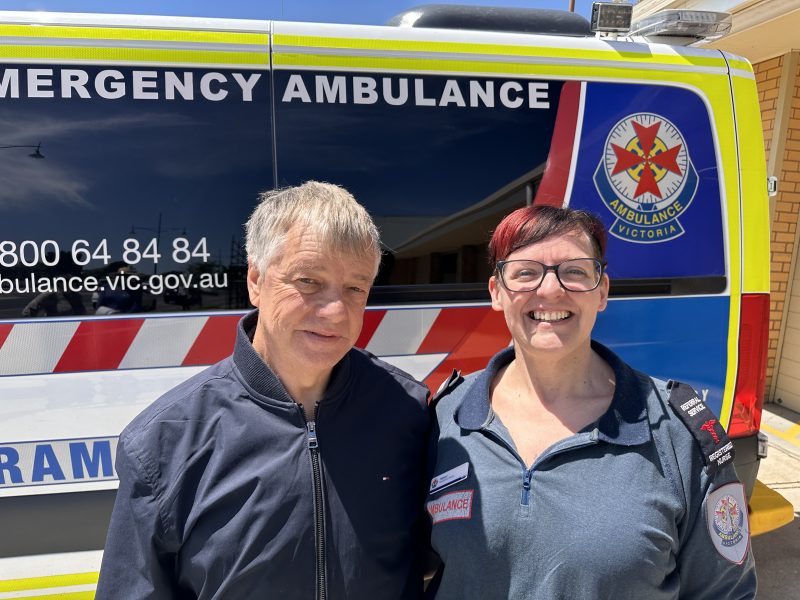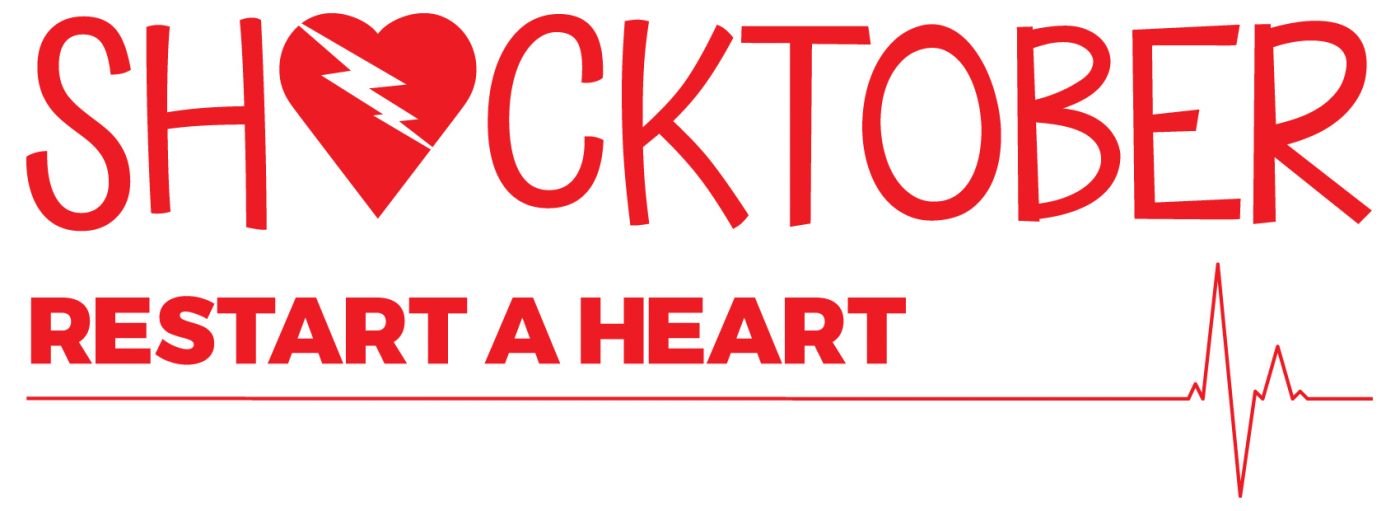After saving someone's life at her rock and roll dance class in August, Helen Dannefaerd is encouraging others to learn cardiopulmonary resuscitation (CPR) this Shocktober.
Two months ago, Wodonga resident, Noel Fidge, 65, was visiting Melbourne when he attended a Glen Waverly dance studio with a friend.
During class, Noel started feeling dizzy and moved to a nearby seat, prompting the dance instructor and other bystanders to call Helen over for help.
Ambulance Victoria (AV) Triage Practitioner and nurse of 14 years, Helen said she knew it was a medical emergency as soon as she laid eyes on Noel.
"I moved him to the floor, checked his airways and immediately started CPR while I yelled for others to call an ambulance."
Helen had identified that Noel had quickly deteriorated into a cardiac arrest.
Luckily, the dance instructor had an automated external defibrillator (AED) on site which Helen instructed him to retrieve.
With the help of two general practitioners who also happened to be in the class, the AED was used to deliver one shock.
The group was continuing CPR when Helen noticed Noel starting to move his hand.
"I grabbed his hand and asked him to squeeze it, when he did, I told everyone to stop compressions," she said.
"He was then able to tell me his full name, date of birth and tried to say it was just his vertigo, but we all knew it was more than that."

Wodonga resident Noel Fidge (left) with Ambulance Victoria Triage Practitioner Helen Dannefaerd (right).
Fire Rescue Victoria and AV paramedics then arrived and transported Noel to Monash Medical Centre where he stayed for two weeks.
Noel has since had a quadruple bypass and an internal defibrillator inserted.
Thanks to Helen's efforts, he is back at home and on his way to making a full recovery.
"I'll be eternally grateful to my angel for bringing me back," he said.
"She took charge and immediately did what was necessary to save my life."
Every day, around 21 Victorians will suffer a cardiac arrest and only 1 in 10 survive.
Minutes matter in a cardiac arrest, and when a patient receives CPR and a shock from an AED before paramedics arrive, their chance of survival more than doubles.
Helen said she just did what everyone should do in that situation: Call, Push, Shock.
"Bystander intervention has the greatest impact on improving someone's chance of surviving a cardiac arrest," she said.
"At least eight people from that class have since come up to me and told me they've booked in to do a CPR course, which fills me with pride."
Helen is also a GoodSAM responder and encouraged all Victorians to sign up to the lifesaving app.
GoodSAM connects Victorians in cardiac arrest with nearby members of the community who are willing to start CPR before paramedics arrive.
You don't have to have to be first-aid qualified or have a medical background to sign up - you just need to be willing and able to do hands-only CPR, be over 18 years of age and have access to a smartphone.







